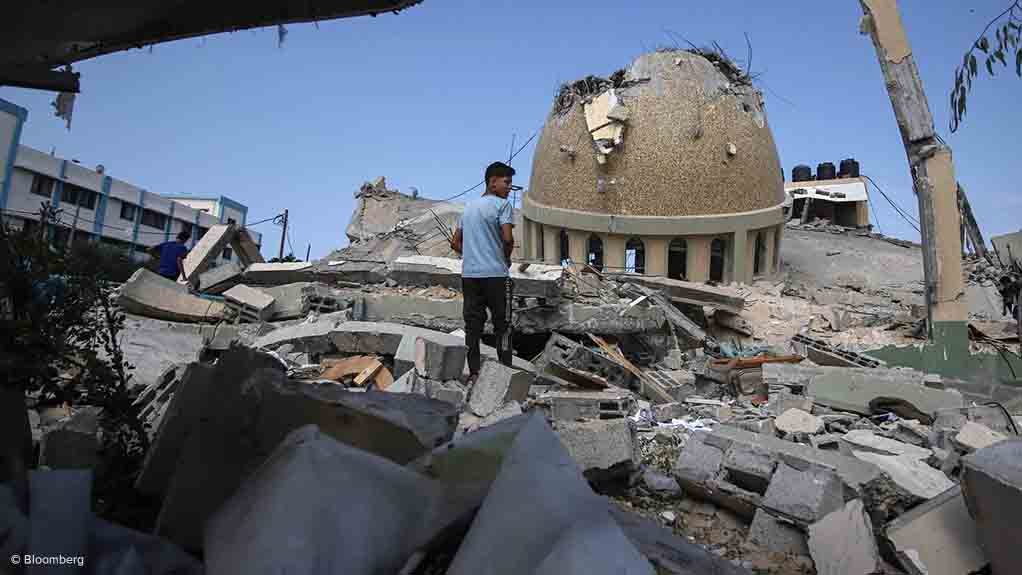Global movement Amnesty International South Africa noted that the International Court of Justice’s (ICJ’s) examination of Israel’s conduct is a vital step for the protection of Palestinian lives, to restore trust and credibility in the universal application of international law, and to pave the way for justice and reparation for victims.
Last month South Africa lodged its case against Israel in the ICJ, alleging that Israel’s acts and failure to act in relation to Palestinians in Gaza, in the wake of the attacks on October 7 by Hamas and other armed groups, are genocidal in character.
South Africa’s application urges the court to order “provisional measures” to protect the Palestinian people in Gaza, including by calling on Israel to immediately stop military attacks that “constitute or give rise to violations of the Genocide Convention” and to rescind related measures amounting to collective punishment and forced displacement.
The Initial hearings will take place at the ICJ in The Hague on Thursday and Friday.
Justice Minister Ronald Lamola will lead South Africa’s delegation to the peace palace in The Hague.
The South African delegation will include director-general in the Presidency Phindile Baleni, Department of International Relations and Cooperation director-general Zane Dangor and Department of Justice and Constitutional Development director-general Doc Mashabane.
Amnesty International said the ICJ proceedings on South Africa’s legal case that alleges that the State of Israel is breaching its obligations under the United Nations Genocide Convention, could help protect Palestinian civilians, end the man-made humanitarian catastrophe in the occupied Gaza Strip and offer hope for international justice.
Amnesty International said that it had not made a determination that the situation in Gaza amounted to genocide.
“However, there are alarming warning signs given the staggering scale of death and destruction with more than 23 000 Palestinians killed in just over three months and a further 10 000 missing under the rubble, presumed dead, as well as an appalling spike in dehumanising and racist rhetoric against Palestinians by certain Israeli government and military officials,” it explained.
It added that this, coupled with Israel’s imposition of an illegal siege in Gaza, which had cut off or severely restricted the civilian population’s access to water, food, medical assistance and fuel, was inflicting unfathomable levels of suffering and put the survival of those within Gaza at risk.
Amnesty International secretary general Agnès Callamard said that there was no end in sight to the mass human suffering, devastation and destruction being witnessed on an hourly basis in Gaza.
“The risk that Gaza would be transformed from the world’s biggest open-air prison to a giant graveyard has, crushingly, materialised right before our eyes,” said Callamard.
“As the United States continues to use its veto power to block the UN Security Council from calling for a ceasefire, war crimes and crimes against humanity are rife, and the risk of genocide is real. States have a positive obligation to prevent and punish genocide and other atrocity crimes.”
Callamard explained that pending a final ruling of the ICJ on whether the crimes of genocide and other crimes under international law had been committed, an urgent order to implement provisional measures would be important to help prevent further death, destruction and civilian suffering and provide a warning to other States that they must not contribute to grave violations and crimes against Palestinians.
MORE PRESSURE
Political party GOOD secretary-general and MP Brett Herron said that pausing the genocide would create an opportunity for the world’s nations to engage in brokering sustainable peace and justice.
“Of course, if the South African application is successful, and the court makes the requested order, Israel could choose to ignore it. This will, once again, show up the court’s – and by extension, the United Nations’ – structural weaknesses. Even so, the order will place Israel under unprecedented moral and legal pressure. If Israel breaches the court’s order, then it is the nations that are party to the Genocide Convention and the United Nations that must act against Israel,” explained Herron.
He said that a symbolic victory at the ICJ would not help the people of Palestine.
“If a ruling for immediate relief is made then the world’s nations, including the so-called ‘superpowers’, must demonstrate their respect for the rule of law and ensure that the ruling is implemented.”
Herron noted that if the United Nations cannot, through nation-State cooperation, give effect to judgments of the ICJ, or negotiate justice and peace, then serious pressure must be applied to changing its archaic structure that afforded disproportionate power to a few privileged nations thereby rendering it unfit for purpose.
EMAIL THIS ARTICLE SAVE THIS ARTICLE ARTICLE ENQUIRY
To subscribe email subscriptions@creamermedia.co.za or click here
To advertise email advertising@creamermedia.co.za or click here











